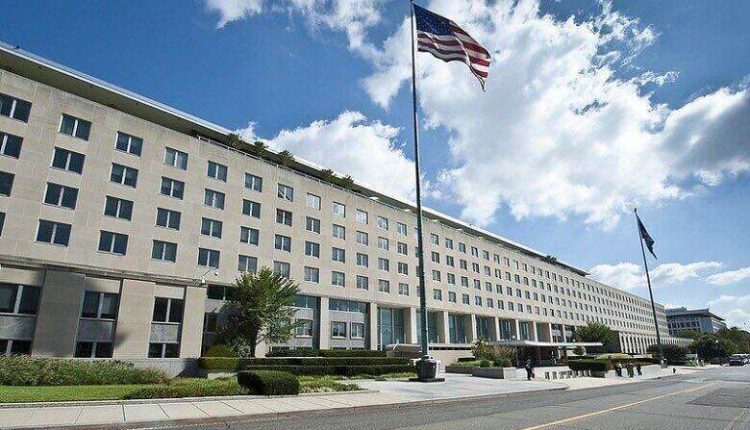By Kardo Roj
WASHINGTON, U.S. (North Press) – The United States is moving forward with preparations to lift sanctions on Syria, U.S. State Department spokesperson Tammy Bruce said Thursday, noting that the process, though complex, is being expedited in accordance with presidential directives.
In a press briefing, Bruce confirmed that both the State and Treasury Departments are working “intensively” to implement the decision made earlier this month by President Donald Trump to lift sanctions on Damascus. “The president made a clear decision—now it’s about executing it as swiftly as possible,” she said.
Bruce acknowledged that the removal of sanctions typically involves coordination among several U.S. federal agencies and requires issuing a series of licenses and procedural decisions, primarily through the Department of the Treasury. “This process takes time, even when instructions come from the president,” she added, while underscoring the administration’s intent to move faster than usual.
The statement follows an earlier announcement on May 12, when President Trump, speaking from Riyadh, Saudi Arabia, declared an end to U.S. sanctions on Syria. The move was accompanied by a high-profile meeting the following day between Trump and Syria’s transitional President Ahmed al-Shara—marking the first encounter between leaders of the two countries in a quarter-century.
Speaking to the Associated Press, a spokesperson for the U.S. National Security Council confirmed that deliberations are ongoing regarding the optimal framework to unwind the sanctions regime, imposed in stages over the course of the Syrian conflict.
The developments in Washington come amid heightened international focus on Syria’s reconstruction and political transition. In the northeast, the Autonomous Administration of North and East Syria (AANES) has long called for a reconsideration of broad economic measures, which have impacted humanitarian efforts and local governance structures that remain central to regional stability.
While specific timelines for the removal of individual sanctions remain unclear, officials have stressed that humanitarian and stabilization priorities are guiding the decision-making process.
It is not yet known how the evolving U.S. policy will affect cross-border aid mechanisms or existing security arrangements, particularly in areas administered by the Syrian Democratic Forces (SDF), a key actor in ensuring post-ISIS security and maintaining stability across the region.
Further announcements are expected in the coming weeks, as interagency coordination within the U.S. government continues.

